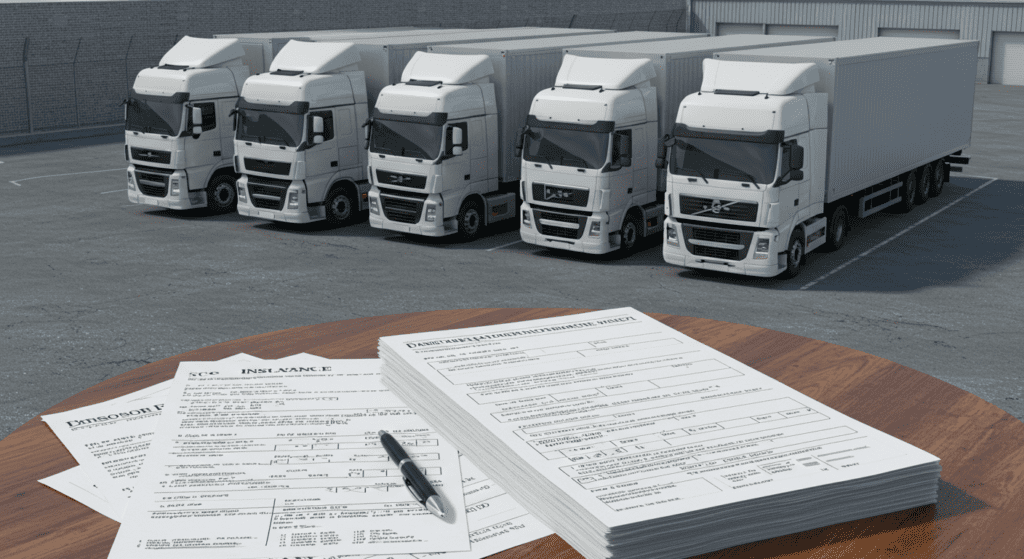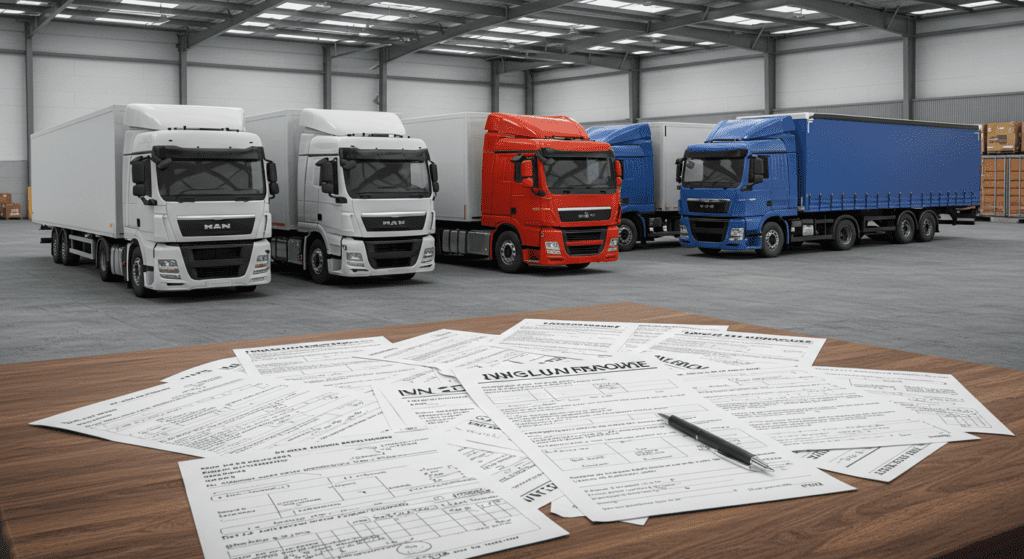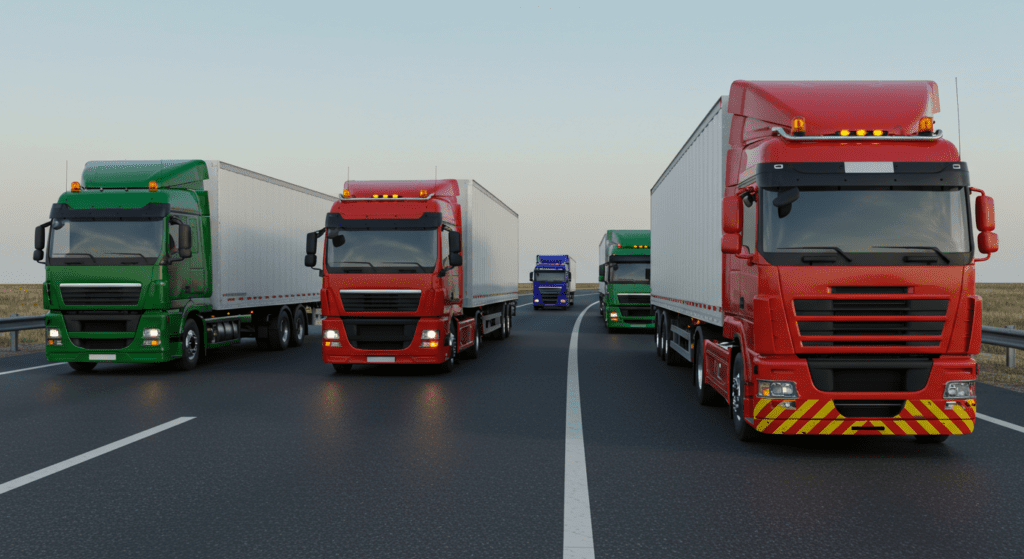- Understanding the Basics of Trucking Insurance
- Assessing Your Fleet’s Specific Insurance Needs
- Types of Trucking Insurance Policies Available
- Comparing Coverage Options and Limits
- Evaluating Insurance Providers and Their Reputation
- Cost Factors: Premiums and Deductibles
- Legal Requirements for Trucking Insurance
- Additional Coverage Options to Consider
- Claims Process and Customer Support
- Making the Final Decision: Choosing the Best Policy for Your Fleet
1. Understanding the Basics of Trucking Insurance
Trucking insurance is essential for protecting your fleet, drivers, and business operations. It provides financial coverage against various risks, including accidents, cargo damage, and liability claims. Understanding the fundamentals of trucking insurance is the first step in selecting the right policy for your fleet. Key components include liability coverage, physical damage coverage, cargo insurance, and additional protections tailored to the transportation industry. Familiarizing yourself with these basics ensures you make informed decisions that safeguard your assets and comply with industry standards.

2. Assessing Your Fleet’s Specific Insurance Needs
Every trucking fleet has unique requirements based on factors such as fleet size, types of cargo, operating regions, and driver qualifications. Assessing your specific insurance needs involves evaluating these elements to determine the appropriate coverage levels. Consider the number of trucks, the value of goods transported, typical routes, and the driving records of your team. Additionally, assess potential risks specific to your operations, such as hazardous materials handling or international shipments. This thorough evaluation helps in selecting a policy that addresses your fleet’s distinct challenges and minimizes exposure to financial losses.
3. Types of Trucking Insurance Policies Available
Trucking insurance encompasses various policy types designed to cover different aspects of your operations. The primary types include:
- Liability Insurance: Covers bodily injury and property damage caused by your trucks.
- Physical Damage Insurance: Protects against damage to your own vehicles from accidents, theft, or natural disasters.
- Cargo Insurance: Insures the goods being transported against loss or damage.
- Bobtail Insurance: Covers your truck when not hauling a trailer.
- Non-Trucking Liability: Provides coverage when a truck is operated for personal use.
- Occupational Accident Insurance: Offers benefits to drivers in case of work-related injuries.
- Trailer Interchange Insurance: Protects your interest in trailers used through interchange agreements.
Understanding each policy type helps you build comprehensive coverage tailored to your fleet’s operations.

4. Comparing Coverage Options and Limits
When selecting trucking insurance, it’s crucial to compare different coverage options and their limits to ensure adequate protection. Evaluate the extent of liability coverage, considering factors like per-incident limits and aggregate limits. Examine physical damage coverage, including collision and comprehensive options, to cover various damage scenarios. For cargo insurance, assess whether the policy covers all types of goods you transport or if additional endorsements are needed. Compare deductibles and exclusions across policies to find a balance between coverage and affordability. Ensuring that the coverage limits align with your operational risks helps protect your fleet from significant financial setbacks.
5. Evaluating Insurance Providers and Their Reputation
Choosing a reputable insurance provider is vital for reliable coverage and support. Research potential insurers’ financial stability, customer reviews, and industry experience. Look for providers specializing in trucking insurance, as they understand the specific needs and challenges of the transportation sector. Check ratings from agencies like A.M. Best or Moody’s to gauge financial strength and reliability. Additionally, consider the provider’s track record in handling claims efficiently and fairly. A trustworthy insurer with a solid reputation ensures that you receive quality service and timely assistance when you need it most.

6. Cost Factors: Premiums and Deductibles
Insurance costs for trucking fleets are influenced by various factors, including fleet size, vehicle types, driver records, and coverage levels. Premiums are the recurring costs of your policy, while deductibles are the amounts you pay out-of-pocket before insurance coverage kicks in. To manage costs effectively, assess how different factors impact your premiums, such as increasing safety measures to reduce risk. Comparing deductibles across policies can also help balance upfront costs with long-term savings. Understanding these financial aspects allows you to choose a policy that fits your budget without compromising essential coverage.
7. Legal Requirements for Trucking Insurance
Compliance with legal requirements is mandatory for trucking operations. Federal and state regulations dictate minimum insurance coverage levels based on factors like the types of cargo transported and the number of trucks in your fleet. For example, the Federal Motor Carrier Safety Administration (FMCSA) sets specific liability and cargo insurance minimums for interstate carriers. Non-compliance can result in hefty fines, legal penalties, and suspension of operating licenses. Ensure that the insurance policy you choose meets or exceeds these legal standards to maintain your fleet’s legality and avoid costly repercussions.

8. Additional Coverage Options to Consider
Beyond basic insurance policies, there are additional coverage options that can provide extra protection for your fleet. These include:
- Umbrella Insurance: Offers extended liability coverage beyond standard policy limits.
- Vehicle Tracking Systems: Coverage for GPS devices and telematics systems used in your trucks.
- Environmental Liability Insurance: Protects against pollution-related damages and cleanup costs.
- Workers’ Compensation: Covers medical expenses and lost wages for injured employees.
- Trailer Hitches and Additional Equipment: Insures specialized equipment attached to your trucks.
Considering these additional options can enhance your overall protection and mitigate risks that standard policies might not cover, providing comprehensive security for your fleet.
9. Claims Process and Customer Support
The efficiency of the claims process and the quality of customer support are critical factors in choosing an insurance policy. A streamlined claims process ensures swift resolution and minimizes downtime for your fleet operations. Evaluate insurers based on their claims handling procedures, average processing times, and the availability of support when you need it. Good customer support includes access to knowledgeable representatives, 24/7 assistance, and clear communication throughout the claims process. Prioritizing these aspects helps ensure that you receive timely and effective assistance in the event of a claim, reducing stress and facilitating quick recovery.

10. Making the Final Decision: Choosing the Best Policy for Your Fleet
Selecting the best trucking insurance policy involves balancing coverage needs, costs, provider reputation, and compliance with legal requirements. Start by identifying your fleet’s specific risks and insurance needs, then explore different policy types and coverage options. Compare premiums, deductibles, and coverage limits across multiple providers to find the most cost-effective solution. Assess each insurer’s reputation, financial stability, and customer service quality to ensure reliability. Ensure the policy meets all legal requirements and consider additional coverage for enhanced protection. Finally, review and understand all terms and conditions before making a decision. By carefully evaluating these factors, you can choose a trucking insurance policy that offers comprehensive protection and support for your fleet’s success.
